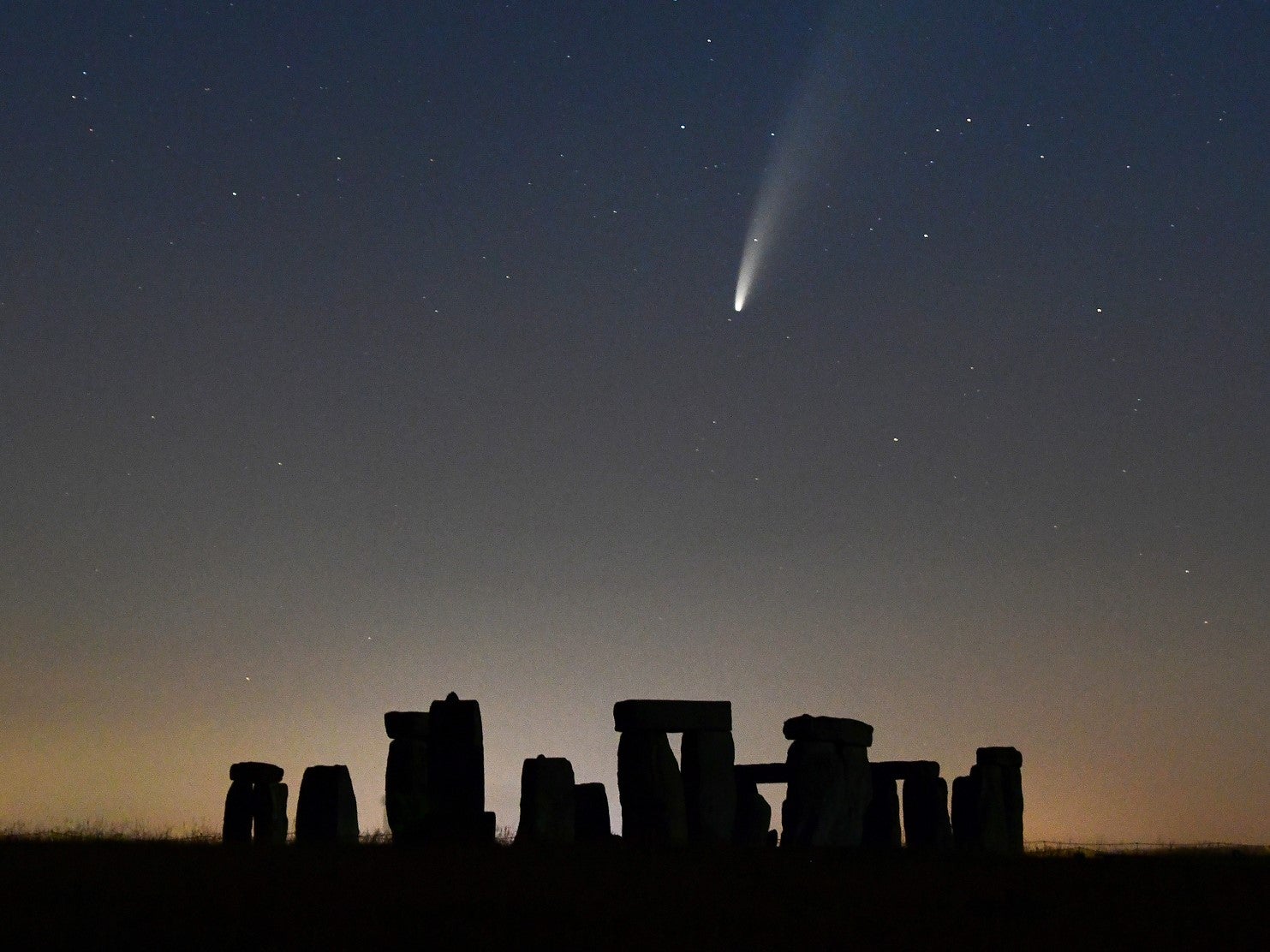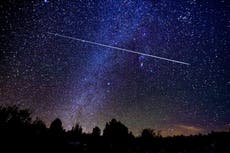Winter Solstice 2021 will see meteor shower coincide with ‘Christmas Comet’
Comet Leonard and Ursid meteor shower to take place on the longest night of the year

The 2021 winter solstice will see the peak of a meteor shower coincide with a rare ‘Christmas Comet’.
The Ursid meteor shower and Comet Leonard will both be visible for casual sky gazers on Tuesday night, weather permitting, and will remain on show right through until Christmas Eve.
The occurrence of the two celestial spectacles on the longest night of the year offers an unrivalled opportunity to witness them, with up to 10 meteors appearing every hour.
Comet Leonard, dubbed the Christmas Comet, will most likely require binoculars to see, according to Nasa, and will look like a green smudge with a slight tail.
“Comet Leonard is predicted to peak at a brightness that will probably require binoculars to spot it,” the US space agency said.
“There’s a chance it could be bright enough to see with the unaided eye, but again, with comets, you never really know.”
The best time to see it is around 45 minutes after sunset, just above the southwestern horizon right next to the planet Venus.
Jupiter and Saturn will also be visible in the night’s sky, directly above Venus and the comet, while Mars should be visible in another portion of the sky.
The best time to see the Ursids is when the sky is at its darkest in the middle of the night, with meteors appearing from the Ursa Minor constellation (the Little Bear).
Weather in the UK tonight is unusually clear for this time of year, according to the Met Office, with most of England and Wales seeing clouds breaking for a great view of the skies.
Unfortunately there will be some cloud over large parts of Northern Ireland and Scotland, however anyone who misses tonight’s cosmic show won’t have to wait long for another.
The Quadrantids meteor shower is set to take place between 26 December 2021 and 16 January 2022, with an average hourly rate of up to 25 meteors. The peak takes place on 2 January, but only lasts for six hours.
Join our commenting forum
Join thought-provoking conversations, follow other Independent readers and see their replies
Comments
Bookmark popover
Removed from bookmarks